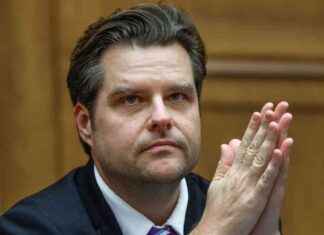“When I fall in love with a person, it’s for themselves, not for what they have under their belt”: a growing number of young people in France claim to be “pansexual”, a variant of bisexuality which “softens” traditional definitions of sexuality.
Pansexual is someone who is “sexually or sentimentally attracted to a person without taking their gender into consideration”, masculine or feminine, defines Perrine, 16, who recognizes herself as such.
“You can’t expect to be attracted to a particular genre. I once had a huge crush on a trans woman, but over time, finding a cisgender man (a man who identifies as a man and was born with the sexual attributes of a man, Editor’s note) particularly attractive, ”adds the teenager, in a relationship with a girl.
For Oscar, a 19-year-old student, being “pan” is “almost a philosophy, a feeling of freedom: we should no longer put people in boxes”.
“I don’t need to cut myself off from half the world’s population”, analyzes the young man, for whom pansexuality “is not only theoretical”, since he confides to having had “adventures with both sexes and even with “non-binary” people.
According to activists and specialists interviewed by AFP, the concept of pansexuality is increasingly used within the LGBT community, and among young people.
“Ten years ago, when I came out, I felt a little lonely. Now it is much more common,” observes Christophe Madrolle, 34, musician.
“The person I meet, I know their gender will not matter. It doesn’t matter what she has under her belt,” sums up the 30-year-old, who is an activist in the “Bicause” association, bringing together bi and pan people.
Those who claim to be “pan” are mostly under the age of 25, notes sociologist Arnaud Alessandrin, a specialist in gender issues. The older ones prefer to call themselves “bi”: “Everyone is shaped by the words of their generation”, even if, in this case, the nuances of vocabulary refer to slightly different realities.
A less “locking” shade
“Previously, the binarity of genders like sexualities drew a landscape of opposition: it was a bit like homos against heteros. And aren’t we talking about the opposite sex? “, observes the university.
“There was no interstice possible for the various life courses and the various identities. From this point of view, pansexuality has considerably relaxed traditional definitions of sexuality.
In the workshops she leads in colleges or high schools, Diane Saint-Réquier, educator and facilitator in sexual health, hears some adolescents spontaneously mention the word “pansexual”, “less confining” than “bi”, according to her.
The “pans” may consider themselves more “free” in their attractions, but they are confronted with many clichés, sometimes very “vexing”, notes the trainer. “Some imagine them as hypersexualized, unfaithful people, who are always missing something”.
And even in LGBT circles, stereotypes are frequent, adds Ms. Saint-Réquier: “We will say of the bi or the pan that he has not really come out, that he does not assume”.
The difference between “bi” and “pan” can be seen as a “nuance”, “but it matters a lot to me”, underlines Léticia Berkate, also a member of “Bicause”.
At 24, the young woman lives in a relationship with a man, and therefore could “pass for hetero in the eyes of society”. “But that’s not my feeling: I could be attracted to a woman. Which doesn’t mean that I necessarily want to go elsewhere.”
“I also heard that all of this was just a pretext to have as many partners as possible”, laments Léticia, who despite everything sees her orientation as a “wealth”.
In a “heteronormative society” which exerts pressure so that everyone “wears a mask of seduction at all times”, “me, paradoxically, I don’t feel that with all the people I meet: I am able to have friendships with both genders without ambiguity and therefore I feel more free in my relationships”.







